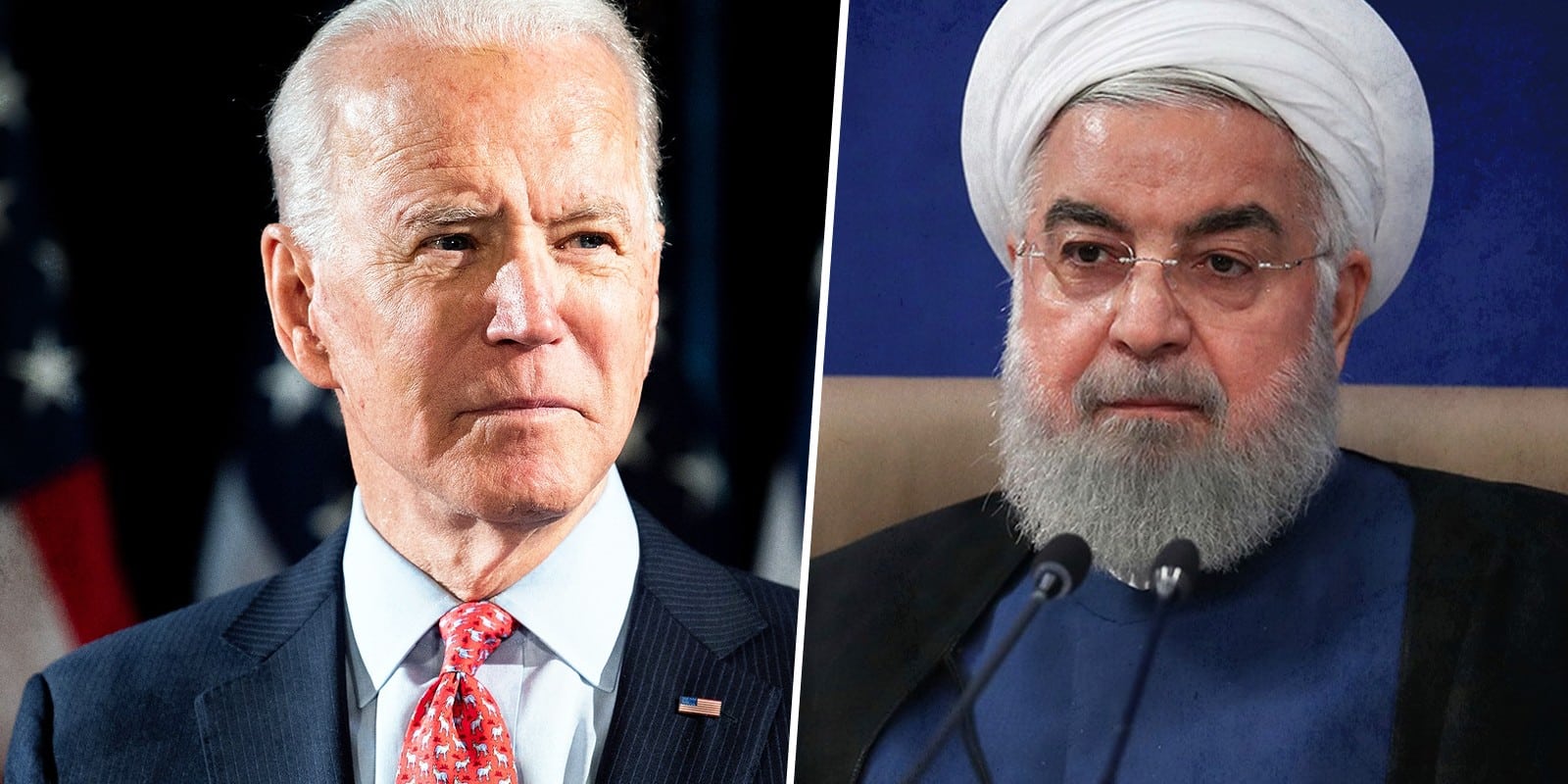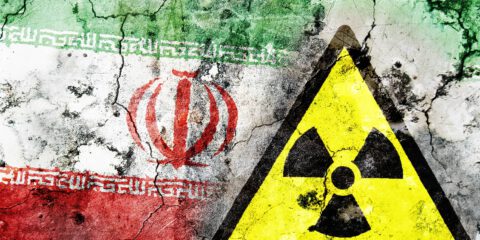Giving Iran unearned incentives in advance of negotiations only will bring about more Iranian provocation.
Iran is gearing up for the Biden administration. Both the so-called “moderates” and the “hardliners” are interested in the quickest removal of American sanctions. To optimists in the West, the bickering between the government of President Hassan Rouhani and Foreign Minister Mohammad Javad Zarif and hardliners may seem like a real ideological internal struggle. In truth, both camps are playing the same game. The differences merely are tactical.
Supreme Leader Ayatollah Ali Hosseini Khamenei has said that no effort should be spared to remove the sanctions. Khamenei’s statement triggered a controversy regarding his real intention. “Moderates” tend to interpret this as approval for resumption of talks with the US, whereas “hardliners” think that Khamenei means that Iran should force Biden’s hand.
In the meantime, Iran already has embarked on a trajectory of escalation versus the US. The Majlis, Iran’s parliament, passed a bill ordering the government to enrich uranium to 20 percent and to produce 120 kg of enriched uranium. The bill also calls to restrict IAEA inspectors’ visits to Iranian nuclear facilities. President Rouhani expressed his objection to the bill because of its harm to the government’s efforts to lift the sanctions. Moreover, Iran let the IAEA know that it is going to produce uranium metal, which is considered as an indispensable component of nuclear weapons.
Recently the IRGC tested long-range missiles and drones against land and sea targets within the framework of military exercises. The combination of the missile tests and preparations to progress in the production of nuclear weapons has alarmed signatories of the JCPOA (namely Germany, the UK, and France) to the point that French foreign minister Jean-Yves Le Drian accused the Iranians of building nuclear weapons. The reason European alarm is clear. By developing medium-range and long-range ballistic missiles and asserting a readiness to produce components of nuclear weapons, Iran is declaring that its nuclear program is not for peaceful purposes. No country in the world ever has developed MRBMs without a nuclear payload.
Yet, the recent developments do not necessarily portend a gross violation of the JCPOA or an imminent breakout to nuclear weapons. If the regime wanted to immediately achieve nuclear military capacity its officials would not have informed the IAEA inspectors of their intentions to produce uranium metal. Rather, the regime is raising the stakes to bargain for more gains in a negotiation. All the while, regime officials state that Iran is not going to change its regional policies or its missile program. An Iran analyst, Jamshid Barzegar argues that the reported disagreement between the two camps in Iran is only a “good cop – bad cop” game, aimed at taking advantage of (the inaccurate) Western belief that there is a genuine ideological conflict between camps in the Iranian political system.
Khamenei deliberately avoids clear directives. He never issues orders, but “advises” and “recommends” in order not to assume responsibility. Neither the parliament nor “hardliners” have a mandate for decision-making on the nuclear file. This issue is the exclusive prerogative of the Supreme Leader’s office and the Supreme Council of National Security. The Rouhani government, the IRGC and “hardliners” cannot reject a “recommendation” or negotiate without Khamenei’s approval.
What the regime is doing is signaling to the West that it ought to swiftly accept all of Iran’s conditions while the “moderate” Rouhani is at the helm. Otherwise, a new or renewed nuclear deal will be impossible to reach because the “hardliners” allegedly are not interested in negotiations. Remember that presidential elections are to be held in Iran in June, which the “hardliners” are likely to win. But there are no real differences on the substantive strategic issues between “moderates and hardliners” in Iran.
Khamenei also has reiterated the Islamic Republic’s duty to “strengthen” its friends and supporters in the region. The Leader’s statement manifests itself in the regional behavior of Iran. Tehran is flexing muscles in all places where its proxies act, demonstrating its intransigence. Therefore, no signs of moderation ahead of the negotiations can be inferred, as indicated in this review of Iran’s aggression across the region.
Yemen
The Houthis have commemorated the death of Qods Force commander Qassem Soleimani and urged Yemenis to continue the “struggle for freedom.” Iranian spokesman Saeed Khatibzadeh condemned the US’s designation of the Houthi movement as a terrorist organization. Recent reports highlighted the deployment of Iranian Shahed-136 loitering munitions (“suicide drones”) in the province of al-Jawf in northern Yemen. Their range is 2,000 to 2,200 km., which endangers Israel and shipping in the Red Sea. No peace settlement is possible in Yemen without addressing Iranian meddling. Many reports completely ignore Tehran’s malicious role in this war-torn country.
Syria
Despite Israeli efforts to strike Iranian targets in Syria, Tehran does not ready to leave Syria. The Israeli air force raid on Deir Ez-zor on Jan. 12 reportedly killed 16 Iraqi and 11 Afghani members of pro-Iranian militias. But Iran keeps deploying its militias and transferring precise munitions to Syria. The IRGC plans to deploy a new artillery unit in Syria. The unit is armed with the Russian laser guided projectile Krasnopol. The use of precise ammunition in Syria by the IRGC is a qualitative improvement of its firepower. No serious friction between Iranian and Russian military officers can be detected. IRGC troops are training with their Russian counterparts.
The hope that Russia might “divorce” from Iran, or that the Russians can or will halt the Iranians from moving closer to Israel’s borders – is baseless. The only Russian “strategic goal” in Syria is the Assad regime’s survival. It is also noteworthy that Russian fighter jets fly over Iranian territory to arrive in Syria. In short, a serious confrontation between Moscow and Tehran is implausible.
Iraq
Iraq remains the most important zone of strategic activity for Iran. Ayatollah Ali Sistani is the most influential Shi’ite “source of emulation” (Marja) in Iraq. He is an Iraqi nationalist despite being a Farsi speaking ethnic Iranian. His relations with the Iranian regime are complicated given that he cannot afford open conflict with Tehran. There is ongoing strife between various local militias and the pro-Iranian militias, such as the PMU (Popular Mobilization Units or al-Hashd al-Shaabi). Corruption is rampant within the PMU, and as a result, Iranian-paid wages have diminished. Sistani has skillfully exploited this discontent to initiate the founding of local militias to protect Najaf. Some of these fighters have decided to split from the PMU.
The Iraqi government must maneuver between the US and Iran. Iraqi officials do not want the US and Iran to turn Iraq into a battleground. But only some former politicians, such as former prime minister Haydar al-Abadi have been willing publicly criticize Iranian meddling in Iraq.
Iranian control of the militias has faltered since the assassination of Qassem Soleimani. “Haj Qassem” was the linchpin of ties between Iraqi militias and Iran, due to his military experience and charisma. The new Qods Force commander, Esma’il Ghaeni, lacks Soleimani’s qualities. He is not charismatic, does not speak Arabic, and is inadept at manipulations and threats. Indeed, his relationship with Iraqi militias is tenuous. Nevertheless, Tehran remains powerful, albeit not omnipotent. Sanctions relief would help Iran resume its cashflow to pro-Iranian militias in Iraq.
Iran continues its efforts to destabilize Iraq. Pro-Iranian militias are equipped with rockets which have been fired into American military bases and foreign missions in the green zone of Baghdad. On January 18, Iraqi intelligence seized two rocket launchers in the province of Kirkuk. The delivery of rockets takes place across the country, making their interception a challenge for the Baghdad government and its security forces.
Iran has no qualms about resorting to gangland methods. On January 3, the IRGC seized a Korean oil tanker (the Hankuk Chemi) on the pretext of polluting the waters. The reason for this may be that some Iranian money was frozen by South Korean banks because of American sanctions. Similarly, Iran has detained Western citizens and demanded “good behavior” by their respective foreign governments as the price of their release.
Conclusion
These examples of aggressive Iranian behavior illustrate that Iran has no intention whatsoever of “moderating” ahead of negotiations with the US. Iran’s aggressive but calculated behavior will continue throughout any period of negotiation. Iran thus seeks to improve its negotiating position and to convince the West that it will not bow to diktats. It will uphold the ideological imperative to help Islamic “resistance” everywhere to continue “exporting the revolution.” At the same time, Iran has been careful not to involve Iranian units in direct attacks on the US and Israel and not to cross a threshold leading to escalation.
The lack of muscular Western reaction to Iranian provocations is understood in Tehran as a green light for this behavior. It is true that Iranian financing of proxies has become more difficult, that deployment in Syria has its difficulties, that sanctions are stifling Iran’s economy, and that the assassination of Soleimani has weakened Iran’s control of its proxies. But the reversal of US policies that pressured Iran, and that would now give Iran unearned incentives, only will bring about more Iranian provocation.
JISS Policy Papers are published through the generosity of the Greg Rosshandler Family.
Photo: Bigstock / MojNews









 - בניית אתרים
- בניית אתרים